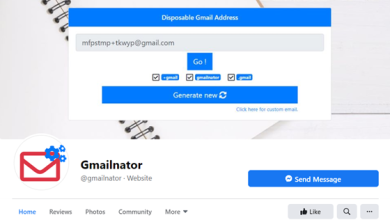
Active defense against cyberattacks is a priority for all responsible businesses. However, one security concern that many businesses ignore is industrial espionage. Industrial espionage and cyberattacks are frequently carried out for the same reason: private information theft. However, unlike a cyberattack, industrial espionage is carried out by a business competitor instead of a random hacker. So, what exactly is industrial espionage, and how can your business protect itself from it?
What’s Industrial Espionage?
Industrial espionage is the theft of private information from a business to gain a competitive edge. Industrial espionage may be carried out in various ways, but the most sophisticated attacks use an employee of the targeted business. A competitor may attempt to hire someone at the target business or approach an existing employee and offer them payment in return for information. In each case, the competitor has an insider threat that effectively works for them.
Industrial Espionage vs. Competitive Intelligence
Competitive intelligence and industrial espionage are not the same thing. Both methods entail gathering information about a competitor. Competitive intelligence, on the other hand, is only carried out legally. Public information that is accessible online is used by a business doing competitive intelligence. It does not include any surveillance or unlawful conduct.
What Information Is Stolen?
Industrial espionage entails gathering any information that may be profitable.
Product Information
Industrial espionage frequently targets information about new products and services. A business might learn about a competitor’s planned items to compete.
Financial Information
Financial information on a firm might be important for strategic objectives. A competitor can make a better offer by analyzing what a business pays its vendors and employees. If an enterprise is cash-strapped, a competitor may attempt to shut it down by placing additional pressure.
Client Information
Suppose a competitor receives a list of a business’s clients. In that case, they are likely gaining a list of individuals who also desire their service and the precise amount to charge for undercutting them. Any stolen client information may be released online to harm the business’s image.
Marketing Information
Marketing concepts for the future can be stolen. An intriguing method of advertising a comparable product may be replicated and publicized sooner. An effective marketing plan could be neutralized by concurrently releasing rival advertisements.
How Is Information Stolen?
Industrial espionage may be performed in a variety of ways.
Insider Threats
An insider threat is an employee who intends to cause harm to a business. Because of the amount of private information they have access to, insider threats are undoubtedly the most potent instrument for undertaking industrial espionage. Employees might become an insider danger if dissatisfied or an outside party offers them payment. A business wishing to engage in industrial espionage may also plant an employee by paying someone to apply for a position.
Hiring An Employee
Industrial espionage is frequently performed by simply hiring an ex-business employee. It is fairly unusual for another business in the same industry to hire an employee to learn what they know after the employee quits the previous one. While non-disclosure and non-compete clauses can make this more difficult, they do not preclude it. Depending on the presence of these agreements, it may not even be unlawful.
Physical Trespassing
Some businesses attempt to steal information merely by entering the building. Many businesses save private information in easily accessible formats, which may be viewed by anybody who gains access to a secure location. Many businesses that invest much in cybersecurity nonetheless have holes in physical security. Physical trespassing may thus be more successful than a cyberattack in some situations.
Eavesdropping
Physical eavesdropping devices are effective if used correctly. Confidential interactions between top employees provide important information about a company’s goals.
Hacking
Industrial espionage is frequently carried out using a variety of cyberattacks. While most hackers work independently, certain businesses do hire hackers for the sole purpose of stealing information. Rather than publicizing stolen information on the dark web, an independent hacker may approach a business and offer to sell it to them.
How To Protect Against Industrial Espionage?
All businesses should take the following actions to protect against industrial espionage.
Prevent Insider Threats
Insider threats are difficult to eliminate since they frequently know how to circumvent an organization’s security protocols. Businesses should constantly be alert for unusual activity among their employees, such as accessing private information not required for their job. Any employee who seems dissatisfied should also be watched.
Require Confidentiality Agreements
Employees with access to private information should be compelled to sign a confidentiality agreement. Any employees with very important information should be prevented from sharing it with a direct competitor after they depart.
Increase Physical Security
All businesses should have proper physical security surrounding any space containing private information. This includes video surveillance and, when applicable, security personnel.
Encrypt All Private Data
All private information must be encrypted and available only to employees who require it to do their jobs. Encryption guards against industrial espionage, including hackers, insider threats, and physical trespassing.
Invest In Cybersecurity
Cybersecurity is a crucial tool in the fight against industrial espionage. All businesses should implement fundamental security measures, such as network traffic monitoring, the usage of security software, and proper employee training.
Consider The Following:
Conclusion:
The majority of businesses should protect themselves from industrial espionage. All businesses contain information that might be useful to their competitors. There are also several ways it might be stolen. While insider threats are the most effective means to steal information, physical trespassing is frequently simple and effective. Cyber attacks are another potent technique that some competing businesses may attempt. To protect against industrial espionage, all businesses should be careful who they hire, watch for unhappy employees, make physical facilities safe, and adopt cyber security.



